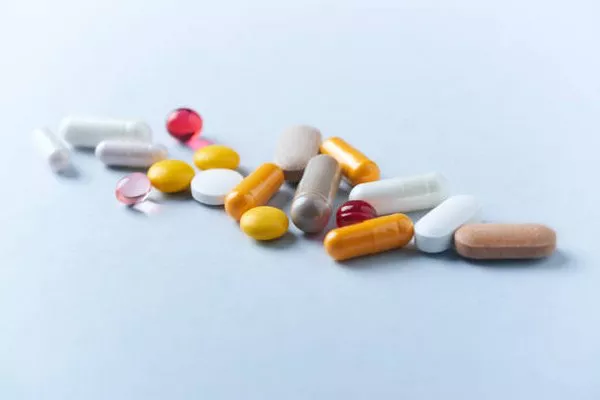In the quest for achieving a healthy weight, teenagers often seek quick solutions, including diet pills. However, the safety and efficacy of these pills for teenagers require careful consideration. This article will delve into safe diet pills for teenagers, providing specific suggestions and addressing key concerns.
Understanding the Importance of Safe Weight Loss for Teenagers
Weight management during teenage years is crucial for overall health and development. Rapid weight loss or using unsafe methods can have detrimental effects on growth, mental health, and future well-being. It is vital to approach weight loss with caution and prioritize safety over quick results.
Why Teenagers Seek Diet Pills
Teenagers may turn to diet pills due to peer pressure, body image issues, or the desire for quick results. However, it’s essential to understand that not all diet pills are safe or effective. Some can lead to severe health issues, including hormonal imbalances, nutrient deficiencies, and heart problems.
The Role of Healthcare Professionals
Before considering any diet pills, it is crucial to consult a healthcare professional. Pediatricians, nutritionists, and dietitians can provide personalized advice and ensure that any weight loss plan is safe and appropriate for the teenager’s specific needs.
Safe and Approved Diet Pills for Teenagers
1. Prescription Weight Loss Medications
Prescription medications may be considered for teenagers with obesity, but only under strict medical supervision. Examples include:
Orlistat (Alli, Xenical): Orlistat works by blocking the absorption of fats from the diet. It is approved for use in adolescents aged 12 and older. However, it can cause side effects like gastrointestinal issues.
Phentermine: This is a short-term appetite suppressant, typically prescribed for severe obesity in teenagers. Its use should be closely monitored due to potential side effects like increased heart rate and blood pressure.
2. Over-the-Counter (OTC) Options
Most OTC diet pills are not recommended for teenagers due to lack of research and potential side effects. However, some supplements with natural ingredients may be safer, such as:
Fiber Supplements: Supplements like glucomannan can help promote fullness and reduce appetite. They are generally considered safe but should be taken with plenty of water.
Probiotics: Certain probiotics can support gut health and aid in weight management. These are usually safe but should be chosen carefully to ensure they contain beneficial strains.
See Also: What Is The Best Weight Loss Pill For Diabetes
Key Ingredients to Look For
When evaluating diet pills, it’s essential to focus on the ingredients. Safe options for teenagers might include:
Green Tea Extract: Known for its antioxidant properties, green tea extract can boost metabolism and support weight loss.
Garcinia Cambogia: This tropical fruit extract is believed to suppress appetite and block fat production.
Conjugated Linoleic Acid (CLA): Found naturally in meat and dairy, CLA is thought to help reduce body fat.
Ingredients to Avoid
Certain ingredients in diet pills can be harmful, especially for teenagers. These include:
Ephedra/Ephedrine: These stimulants can cause serious heart issues and are banned in many countries.
Sibutramine: Previously used in weight loss drugs, sibutramine was banned due to its cardiovascular risks.
Excessive Caffeine: High doses of caffeine can lead to heart palpitations, anxiety, and sleep disturbances.
The Importance of a Balanced Diet and Exercise
While diet pills can aid in weight loss, they should not replace a balanced diet and regular exercise. Encouraging teenagers to develop healthy eating habits and an active lifestyle is crucial for sustainable weight management.
Developing Healthy Eating Habits
Balanced Meals: Encourage the consumption of fruits, vegetables, lean proteins, and whole grains.
Portion Control: Teach teenagers to recognize proper portion sizes and avoid overeating.
Hydration: Emphasize the importance of drinking water over sugary beverages.
Promoting Regular Exercise
Cardio Activities: Activities like running, cycling, and swimming can help burn calories and improve cardiovascular health.
Strength Training: Incorporating strength training can build muscle mass and boost metabolism.
Consistency: Encourage regular physical activity, aiming for at least 60 minutes of moderate to vigorous exercise most days of the week.
Psychological Support and Body Image
Addressing psychological aspects is essential in a teenager’s weight loss journey. Building a positive body image and self-esteem can prevent unhealthy behaviors.
Counseling: Therapy or counseling can help teenagers deal with body image issues and develop a healthy relationship with food.
Support Groups: Joining support groups can provide motivation and a sense of community.
Monitoring Progress and Adjusting Plans
Regular check-ins with healthcare professionals can help monitor progress and make necessary adjustments. This ensures that the weight loss plan remains safe and effective.
Conclusion
While diet pills may seem like a quick fix, their safety and efficacy for teenagers require careful consideration. Consulting healthcare professionals, focusing on natural ingredients, and emphasizing a balanced diet and regular exercise are key to achieving healthy weight management. Ensuring psychological support and monitoring progress can further contribute to a teenager’s overall well-being.


